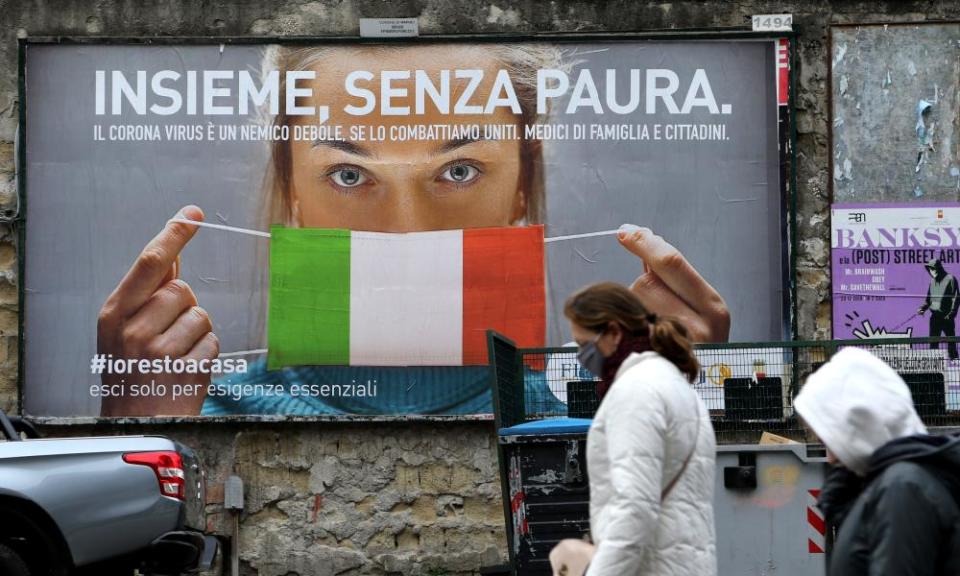Coronavirus: the week explained

Welcome to our weekly roundup of developments in the coronavirus pandemic. With lockdowns continuing in countries around the world, scientific advances are being made, even as new stumbling blocks appear.
A crucial biological mechanism by which the coronavirus infects humans has been unpicked
On Monday, scientists at the University of Minnesota revealed that they have examined the structure of the coronavirus in detail, in particular the spikes on its surface that help it attach to human cells. The results show that the interaction between these spikes and their corresponding receptors on human cells is about four times stronger than was the case for Sars – another coronavirus. That means that when it comes to infection, a little of the new coronavirus goes a long way.
Experts say the findings have opened up the possibility of a new target for treatments for Covid-19.
The promise of increased testing in the UK has hit a sticking point
At present Germany is carrying out about 70,000 polymerase chain reaction (PCR) tests a day – these tests detect genetic material from the virus to reveal who has the infection – and has been held up as an example of good practice, even though there is pressure there to do even more.
In Britain, however, progress has been slow and anger is growing. On Wednesday it emerged that just 2,000 out of half a million frontline NHS staff had been tested for the virus.
Setting out a new five-point plan to boost testing on Thursday, the health secretary, Matt Hancock, said PCR testing was expanding in hospitals and other testing facilities, with patients and NHS staff being the top priority. He said the government was aiming for 100,000 tests a day by the end of April, including PCR and antibody tests, the latter indicating who has already had the disease based on blood from a finger-prick.
To help with this, commercial laboratories, including universities and private businesses, are pitching in to speed up testing in what has been dubbed a “Dunkirk effort” – an approach many say should have been taken sooner.
But the British government is facing several problems, including shortages of chemicals needed to carry out testing, leading experts to call for rules to be relaxed in order for alternatives to be used; and the lack of any reliable antibody tests for Covid-19.
Humans may wish to include their cat in the lockdown
On Wednesday research from China revealed that infected cats can transmit Covid-19 to other cats, with a similar situation seen between ferrets. While there is no direct evidence the disease passes from cats to humans, a report from Belgium has suggested one owner did pass Covid-19 to their feline friend.
Related: How pets are helping us through the coronavirus crisis
By contrast, the team in China found that dogs, chickens, pigs and ducks were unlikely to catch the infection or pass it on to their peers.
Experts have advised pet owners to be particularly vigilant about handwashing. To find out more about why soap and water is so effective in tackling coronavirus, tune in to the Guardian’s Science Weekly podcast which has a new episode on the issue, as well as other questions including how the virus may affect pregnant women and how different tests for the infection work.
Tensions continue to rise around cruise ships
In the US, there were cheers from port workers on Thursday night as the Zaandam cruise ship, on which four people have died from coronavirus, was finally allowed to dock in Florida, together with its sister ship the Rotterdam, despite resistance from the state’s politicians. The Zaandam had last stopped in South America on 14 March and had since been turned away from 11 countries. However, other cruise ships remain in limbo while carrying passengers infected with Covid-19, including the Coral Princess, which is also hoping to dock in Florida.

Cruise ships are also in purgatory off the coast of Australia, with many staying put despite being ordered to leave. This week the New South Wales government announced that a military-style operation may be employed to test all cruise ship crew members, with anyone in need of medical attention being evacuated to hospital. They hope the ships will then return to their ports of origin.
Face masks may yet become the accessory du jour
Surgical face masks have been deemed to have little effect in protecting individuals from catching coronavirus in general situations, not least because they are not close-fitting and tiny viral particles can penetrate them, unlike well-fitting masks that have a respirator to filter air, such as FFP3 models.
However, surgical masks can catch droplets from coughs and sneezes, suggesting they do offer some protection, and experts say they may help to reduce the transmission of Covid-19 from infected people even before they show symptoms by catching droplets when people talk.
This week the Hospital Consultants and Specialists Association stressed that staff and patients should wear surgical masks to cover their mouths and reduce the risk of transmission of Covid-19.
Related: Can a face mask protect me from coronavirus? Covid-19 myths busted
Now the World Health Organization and the the Centers for Disease Control and Prevention in the US are looking into whether wearing surgical masks in public may, after all, help in the fight to tackle the pandemic. Among the reasons for the rethink is the fact that such masks were used in Hong Kong, where containment has proved effective. Bill De Blasio, the mayor of New York City, has asked all residents to wear them outside.
Bonhomie is wearing thin
In Italy the camaraderie of earlier weeks appears to be giving way to social unrest, with Italians no longer singing or dancing on balconies as dwindling reserves of food and money cause tensions to rise, particularly in poorer regions.
Coronavirus continues to hammer all aspects of society
Sport continues to be battered by the coronavirus: this week it has emerged that sporting bodies in the UK fear they may not survive the outbreak, while financial news is also grim: the Eurozone’s manufacturing and services sectors has revealed the biggest ever single monthly fall in March.
And finally …
While crises can spur incredible developments in science and society, not every attempt is a success. This week a 27-year-old astrophysicist in Melbourne needed medical help in what may be the strangest Covid-19-related hospital admission yet.
Playing with powerful neodymium magnets while trying to develop a necklace that buzzed when its wearer touches their face, Dr Daniel Reardon ended up getting the magnets stuck in his nose. “The doctors thought it was quite funny, making comments like: ‘This is an injury due to self-isolation and boredom’,” he said.

 Yahoo News
Yahoo News 